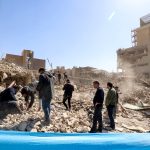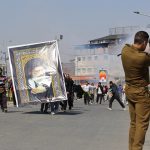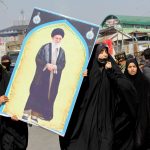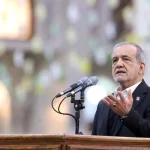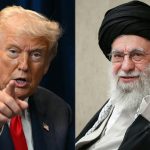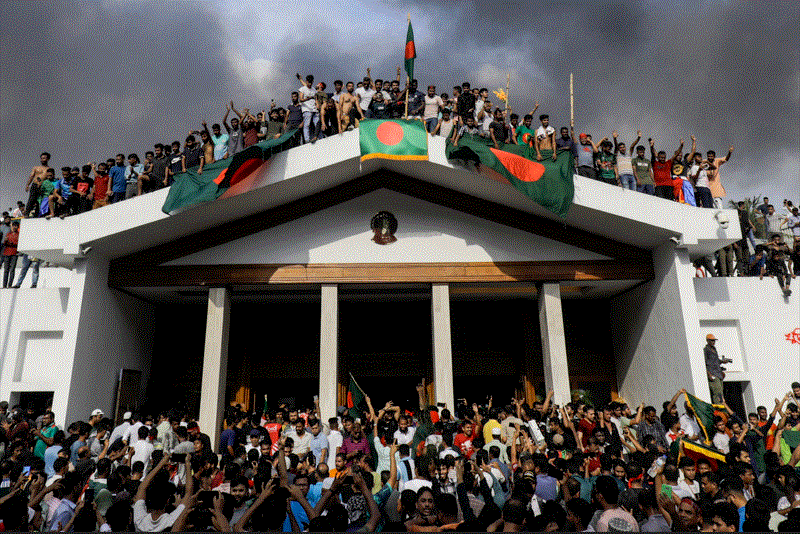
Sheikh Hasina’s 15-year rule as Bangladesh’s prime minister ended Monday as she fled more than a month of deadly protests and the military announced it would form an interim government.
Hasina had sought to quell nationwide protests against her government since early July but she fled the country after brutal unrest on Sunday in which nearly 100 people were killed.
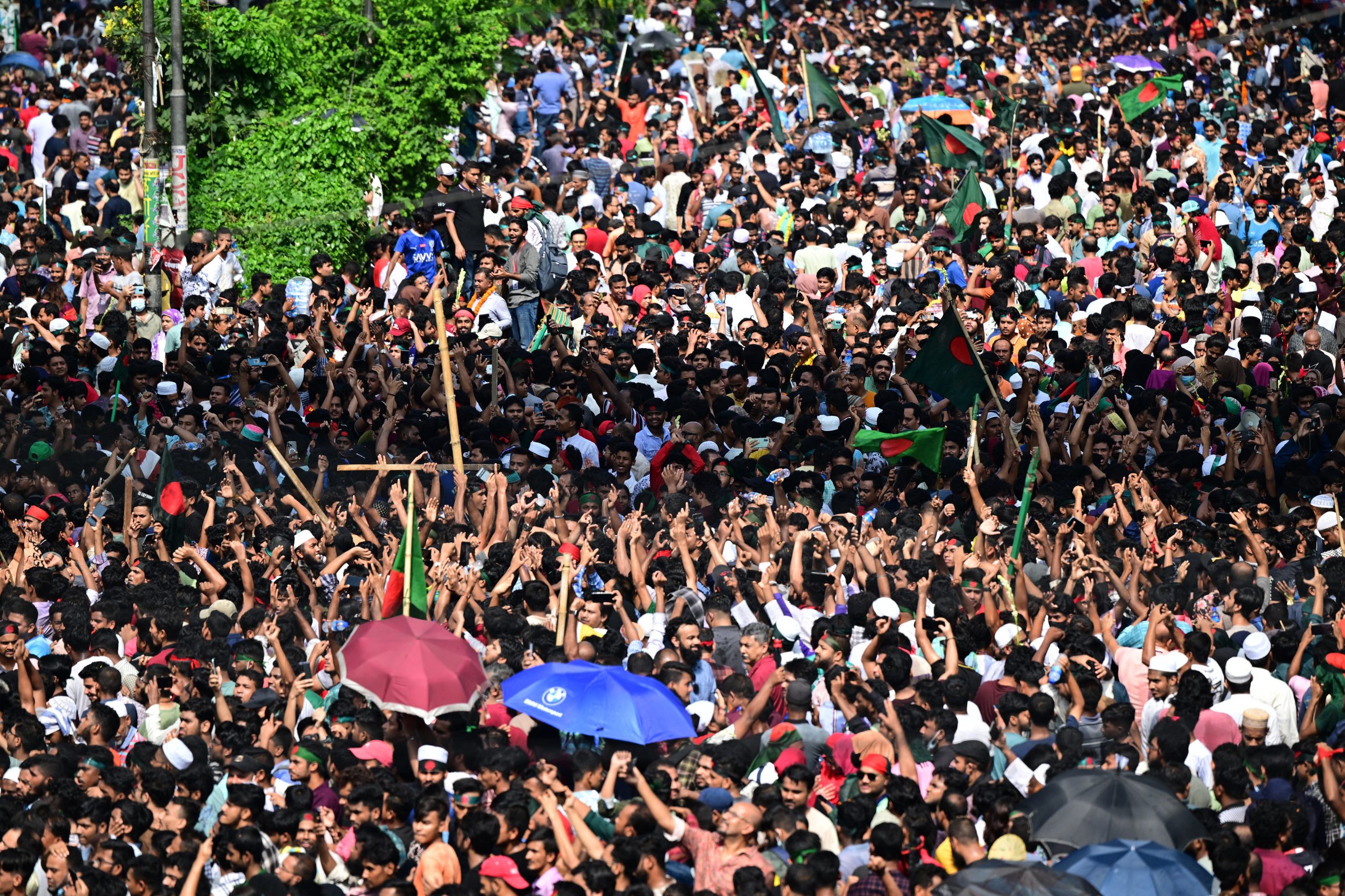
“We want a corruption-free Bangladesh, where everyone would have the right to express their opinion,” said Monirul Islam, a 27-year-old man among hundreds of thousands celebrating in the streets in the capital Dhaka.
Bangladesh’s army chief General Waker-Uz-Zaman said in a broadcast to the nation on state television that Hasina had resigned and the military would form a caretaker government.

“The country has suffered a lot, the economy has been hit, many people have been killed — it is time to stop the violence,” said Waker, shortly after jubilant crowds stormed and looted Hasina’s official residence.
At least 66 people were killed Monday, police said, saying gangs had launched revenge attacks on Hasina’s allies. Many were shot.
Millions of Bangladeshis took to the streets across the South Asian country.
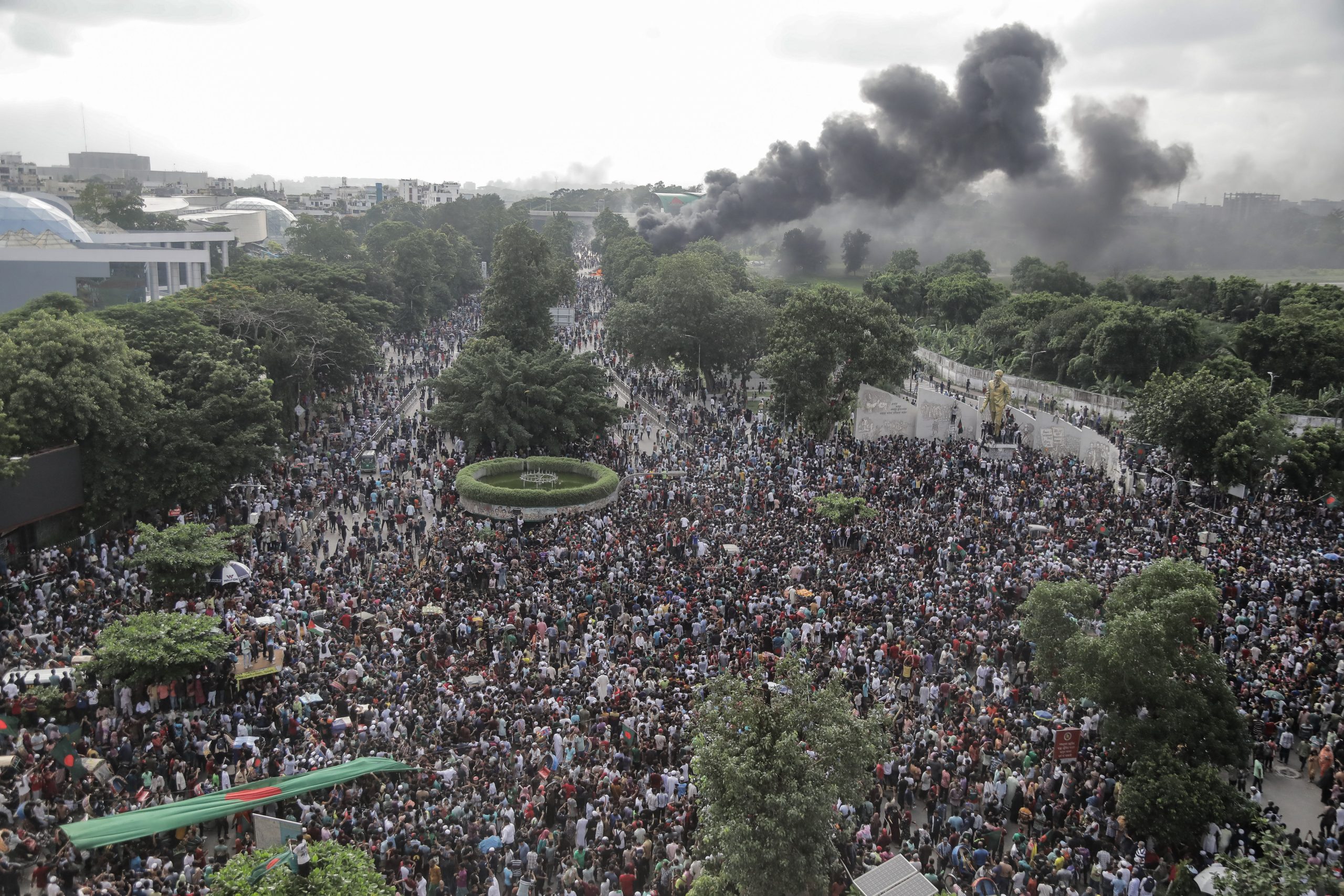
Jubilant crowds waved flags, some dancing on top of a tank, before thousands broke through the gates of Hasina’s residence. Others later stormed parliament.
Bangladesh’s Channel 24 broadcast images of crowds running into the prime minister’s compound, grinning and waving to the camera, looting furniture and books, or relaxing on beds.
– ‘Mob rule’ –
Mobs also raided and ransacked the homes of Hasina’s Awami League party allies as well as police stations, witnesses told AFP.
“The homes and businesses of pro-Awami League people have been attacked,” a senior police officer said, speaking on the condition of anonymity, and calling the violence “mob rule”.
Others torched television stations that had backed Hasina’s rule, smashed statues of her father Sheikh Mujibur Rahman, the country’s independence hero, and set fire to a museum dedicated to him.
“The time has come to make them accountable for torture,” said protester Kaza Ahmed. “Sheikh Hasina is responsible for murder.”
Waker said protests should end and vowed that “all the injustices will be addressed”, while the military said it would lift a curfew on Tuesday morning, with businesses and schools to reopen.
Late Monday, Bangladeshi President Mohammed Shahabuddin ordered the release of prisoners from the protests, as well as former prime minister and key opposition leader Khaleda Zia, 78.

Zia, who is in poor health, was jailed by her arch-rival Hasina for graft in 2018.
The president and army chief also met late Monday, alongside key opposition leaders, with the president’s press team saying it had been “decided to form an interim government immediately”.
It was not immediately clear if Waker would lead it.
Security forces had supported Hasina’s government throughout the unrest, which began last month in the form of protests against civil service job quotas and then escalated into wider calls for her to stand down.
Hasina, 76, fled the country by helicopter, a source close to the ousted leader told AFP.
Media in neighbouring India reported Hasina had landed at a military airbase near New Delhi.
A top-level source said she wanted to “transit” on to London, but calls by the British government for a UN-led investigation into “unprecedented levels of violence” put that into doubt.
Bangladesh’s military said they had shut Dhaka’s international airport on Monday evening, without giving a reason.
There were widespread calls by protesters to ensure Hasina’s close allies remained in the country.
By AFP

